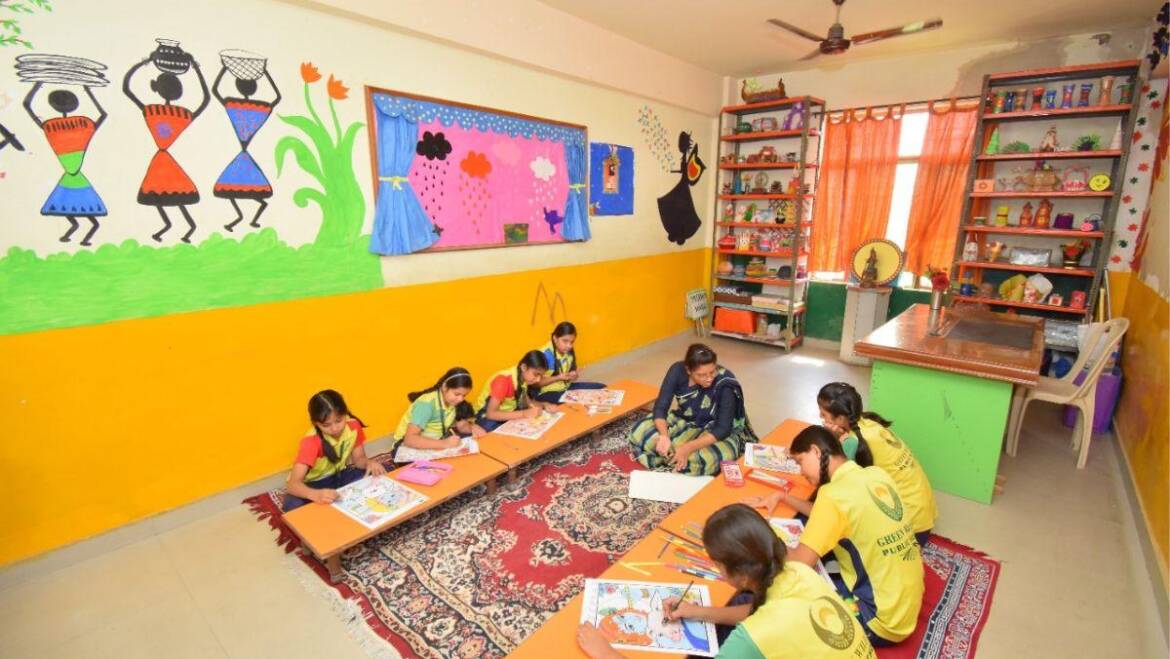Need for Disciplining Children
Let’s begin with accepting the truth that ‘discipline’ isn’t the other word for punishment. The Latin origin of the word discipline is ‘to teach. Disciplining your child means teaching them responsible behavior and self-control. An undisciplined child is often an unpleasant company and finds it difficult to make friends, thus impacting their people skills and social life. Child behavior experts believe that discipline is as vital for healthy child development as nutritious food, motor skills, cognitive and physical exercises, and other emotional needs. It is not only good for your children but also necessary for their happiness and overall well-being. Especially for school-age children, it is crucial to learn how to manage their behavior and regulate their negative impulses.
Without discipline, children lack the tools necessary to navigate relationships and challenges in life, such as self-discipline, respect for others, and cooperation with peers.
Benefits of Disciplining Children
- More likely to engage in positive behaviors that are beneficial for themselves as well as others
- Disciplined children tend to be more confident and have the drive to do well in life
- Learn accountability and self-control early on in life
- Learn social skills that are important for making friends, such as empathy, patience, and knowing how to share
- Their sense of entitlement is largely countered
- More likely to understand what appropriate behavior is
- Respect their parents or other authority figures
- Learn to accept instructions and behave like a team player
- Educates the child on appropriate behavior under different circumstances at home, school, a friend’s house, or in a public place
- Teaches them to manage their behavior and develop important social skills
- It helps them understand, manage and express their feelings
Here is How to Discipline a Child
1. Plan one-on-one time
Quality time, more importantly, one-on-one time is crucial for building any good relationship with your child.“It can be 20 minutes a day. Or even 5 minutes. You can combine it with something like washing dishes together while you sing a song or chatting while you’re hanging out the washing,” says Professor Cluver. “What’s important is that you focus on your child. So, you turn your TV off, you turn your phone off, you get to their level, and it’s you and them.” Remember, the most powerful tool for effective discipline is attention. Every child craves their parent’s attention. It helps reinforce good behavior and discourages bad behavior.
2. Catch them being good.
Parents are often quick to find faults in their children’s behavior. Sometimes children may read this as a way to get your attention, which could lead to poor conduct. The truth is that the child thrives on praise as it makes him/her feel special and loved. When parents notice good behavior and praise them for their efforts and accomplishments, for example, “Wow! You did a good job putting your toy away!” it makes children happier and more disciplined.
3. Set clear limits.
Setting limits teaches children self-discipline skills. If you say, “It’s time to stop watching the TV/tablet and do your homework,” you are teaching them self-discipline. Even though watching their favorite shows may be more fun, leading them to be more responsible is important. Set clear and consistent rules that are age-appropriate.
4. Explain the consequences.
Try explaining the consequences when your kid doesn’t behave like a friend. For example, you could tell them that if they do not pick up their toys, you shall put them away for the rest of the day. The most important step in this process is to ‘stick to the threat.’ Do not give in by returning the toys when the child fails to follow the instruction immediately. Beware not to become over-controlling or thoughtless in the process; never take away something your child truly needs, such as his/her food.
5. Be open to accepting all kinds of behavior
Rather than anticipating certain unacceptable situations you might find your child in, be open to making mistakes, understand where they are coming from, and guide accordingly. Children are not just in a bad mess but are also observant of handling themselves in such situations. They notice how well you approach and resolve such issues and learn to deal with them accordingly. Make them self-reliant, explain the consequences to some extent, and do not force your fears on them. Instead, have a friendly and thoughtful conversation with them.
Children are indeed your reflections, and so is the environment they live in. The more discipline they see daily, they tend to mimic the same.
Role of School in Disciplining a Child
Children spend about one-third of their day at school. Their teachers, peers, and school atmosphere play an influential role in shaping young minds. A school that not only disciplines a child but is innately disciplined hugely impacts and eases their introduction to a disciplined life.
Discipline in children aims to materialize a healthy attitude and a positive and mindful state of being.
Progressive school learning theory and educational philosophy is a strategy toward an enhanced disciplined life at school. Green Willow Public School Mathura embodies the spirit of collaboration and togetherness while allowing the space for an individual to grow as a self-disciplined and self-reliant individual. The school aims to nurture the habits of mind and heart of young ones. Henceforth, educators, infrastructure, and curriculum are consciously adopted. If you intend to forge your child into an empowered human being who strongly believes in making a positive difference in the world, join our community today.

